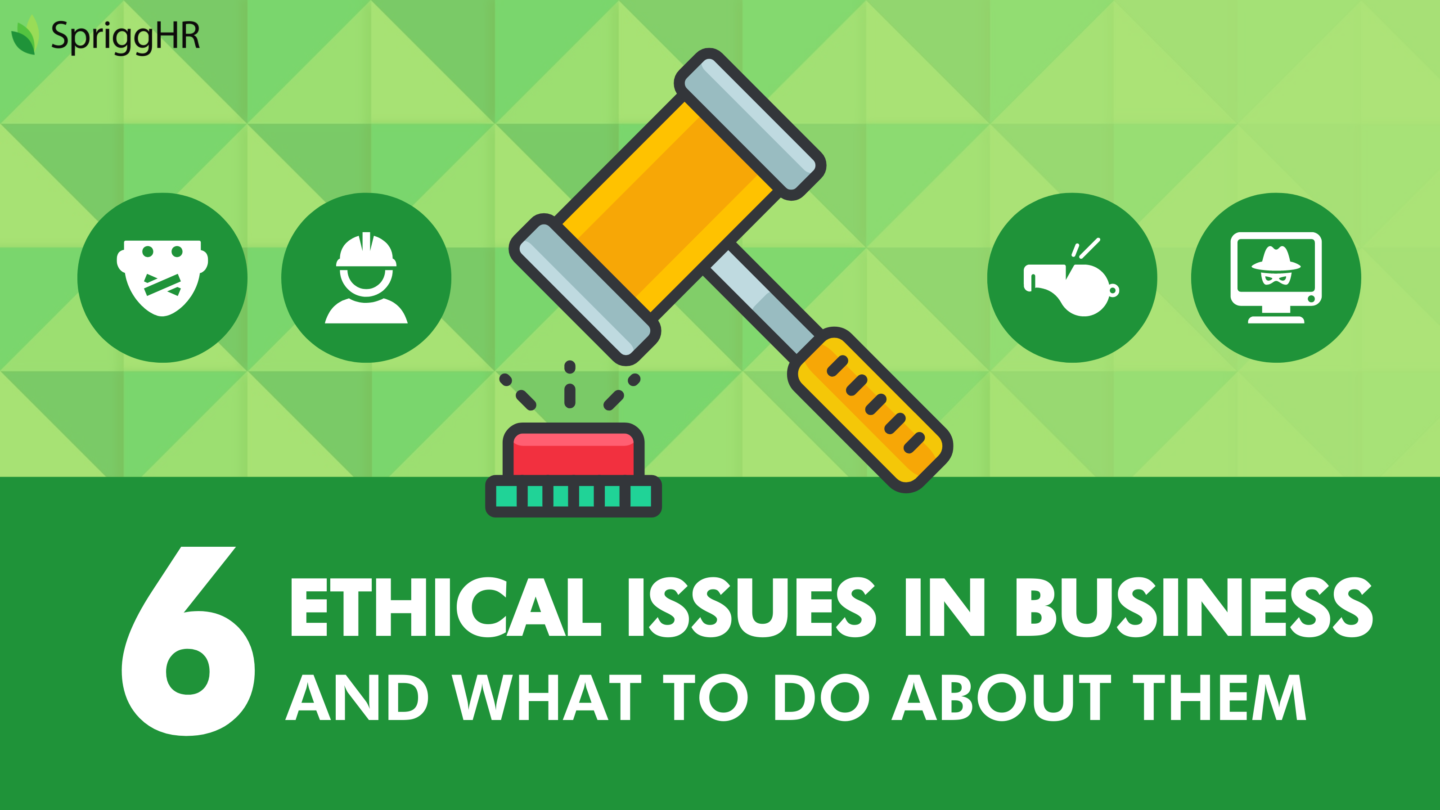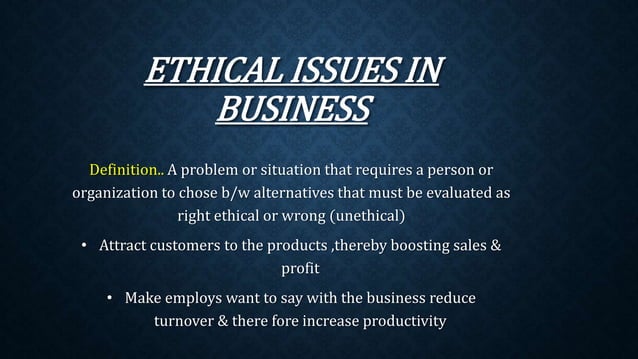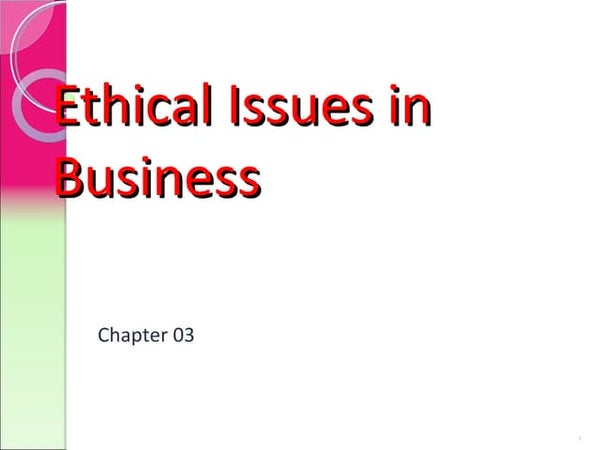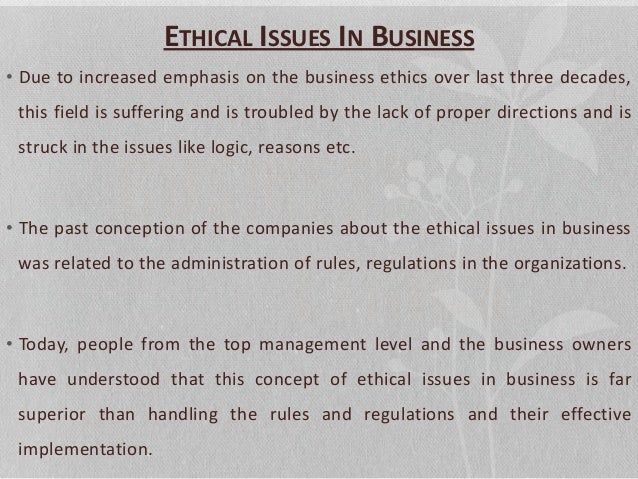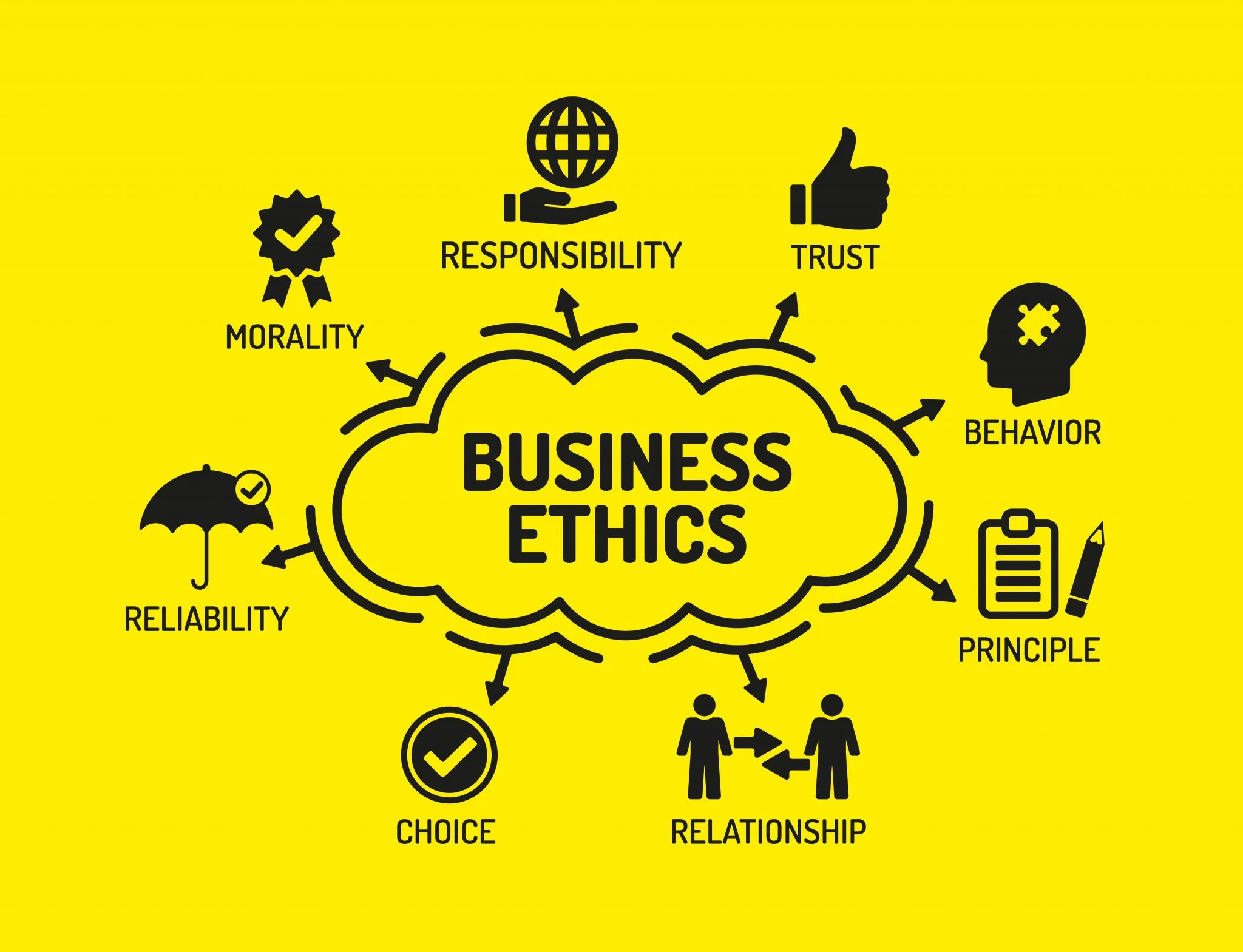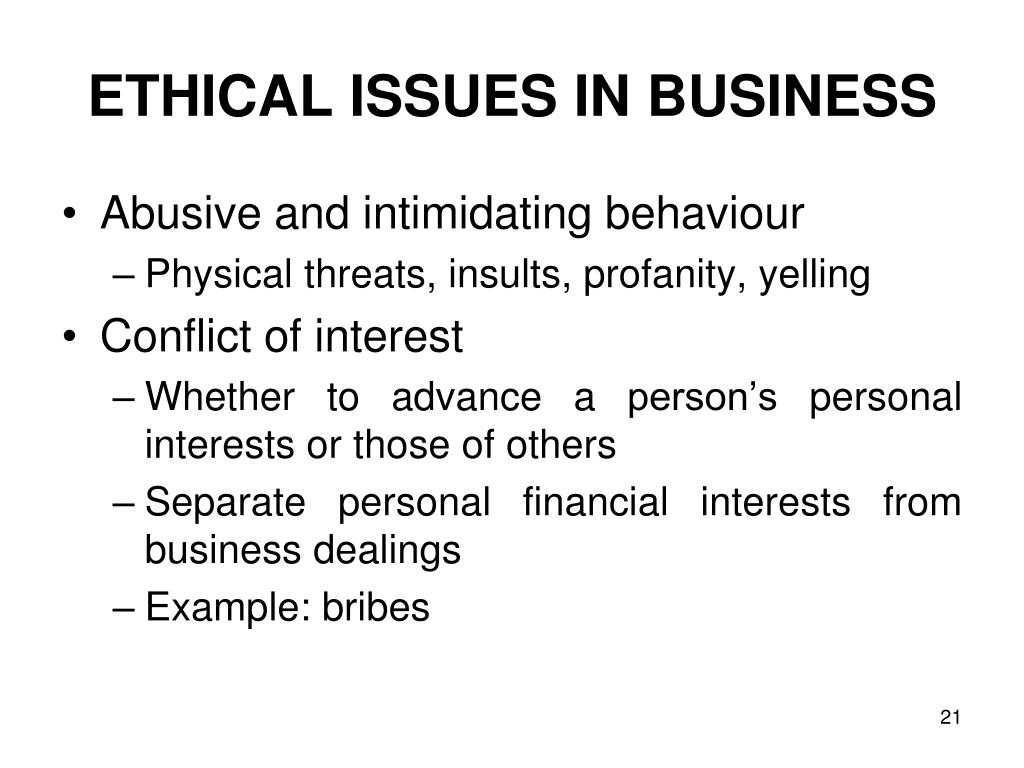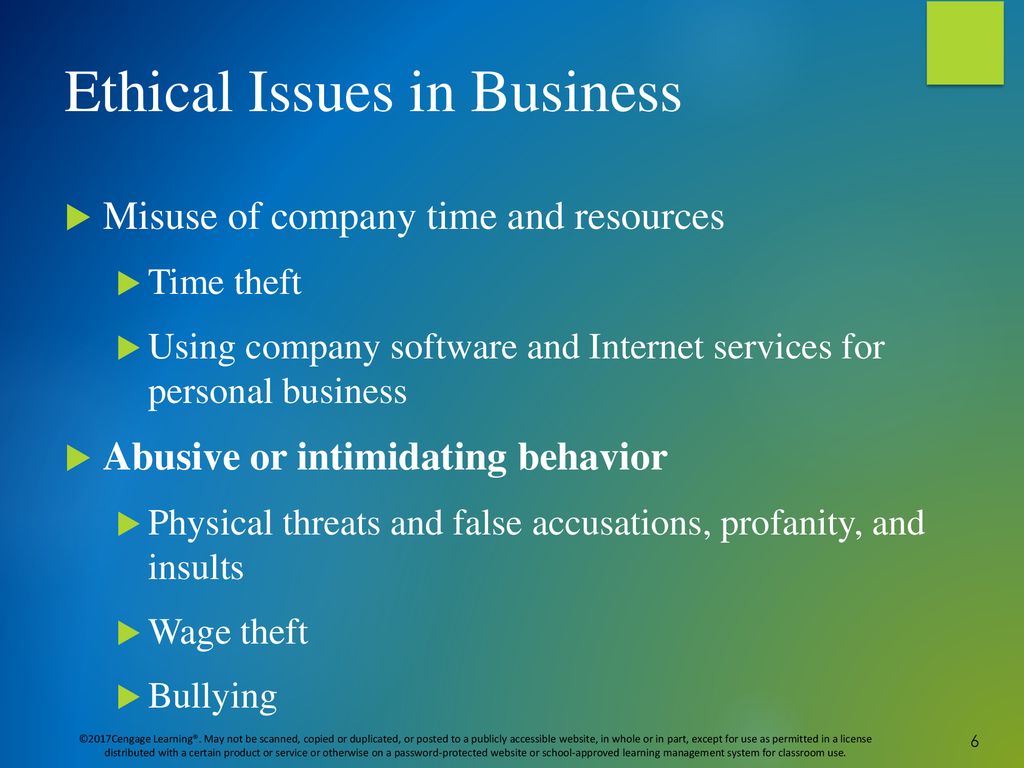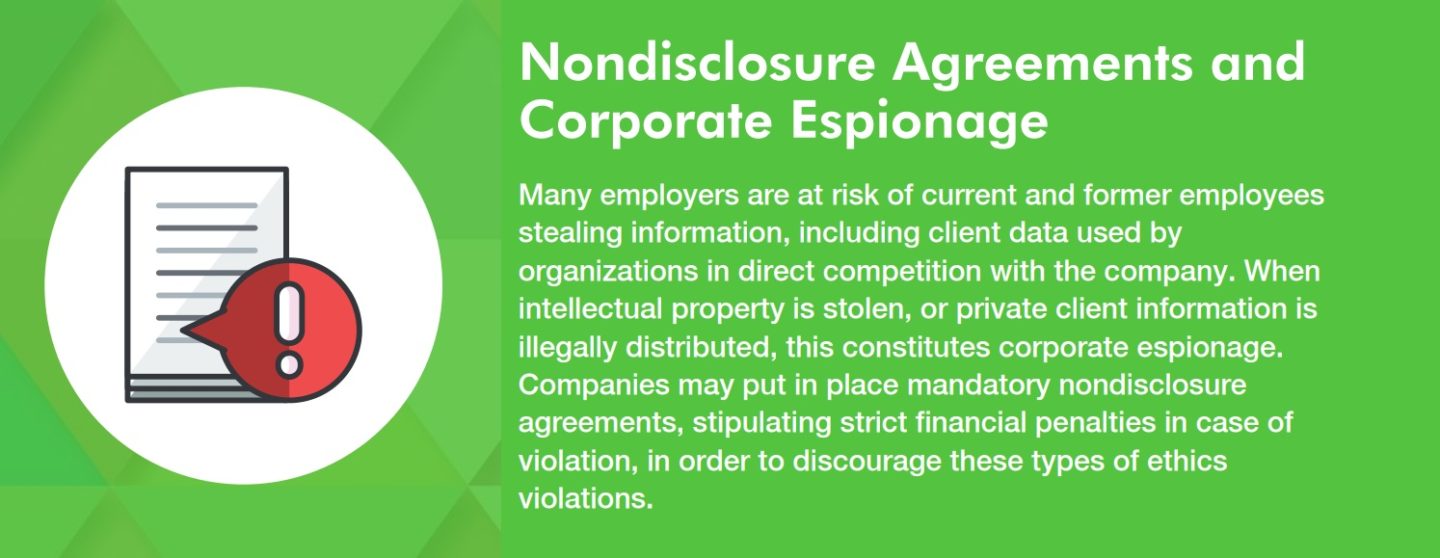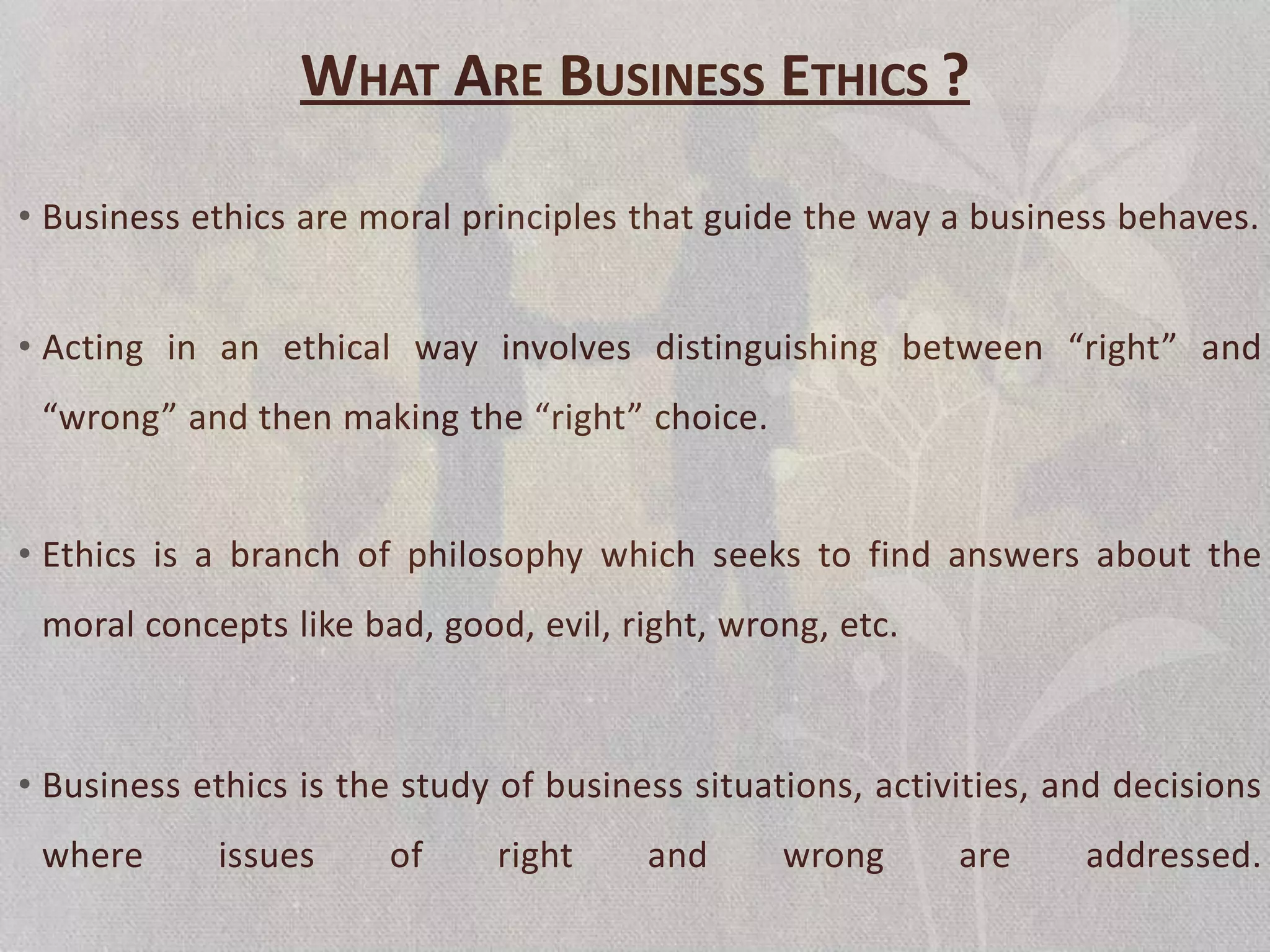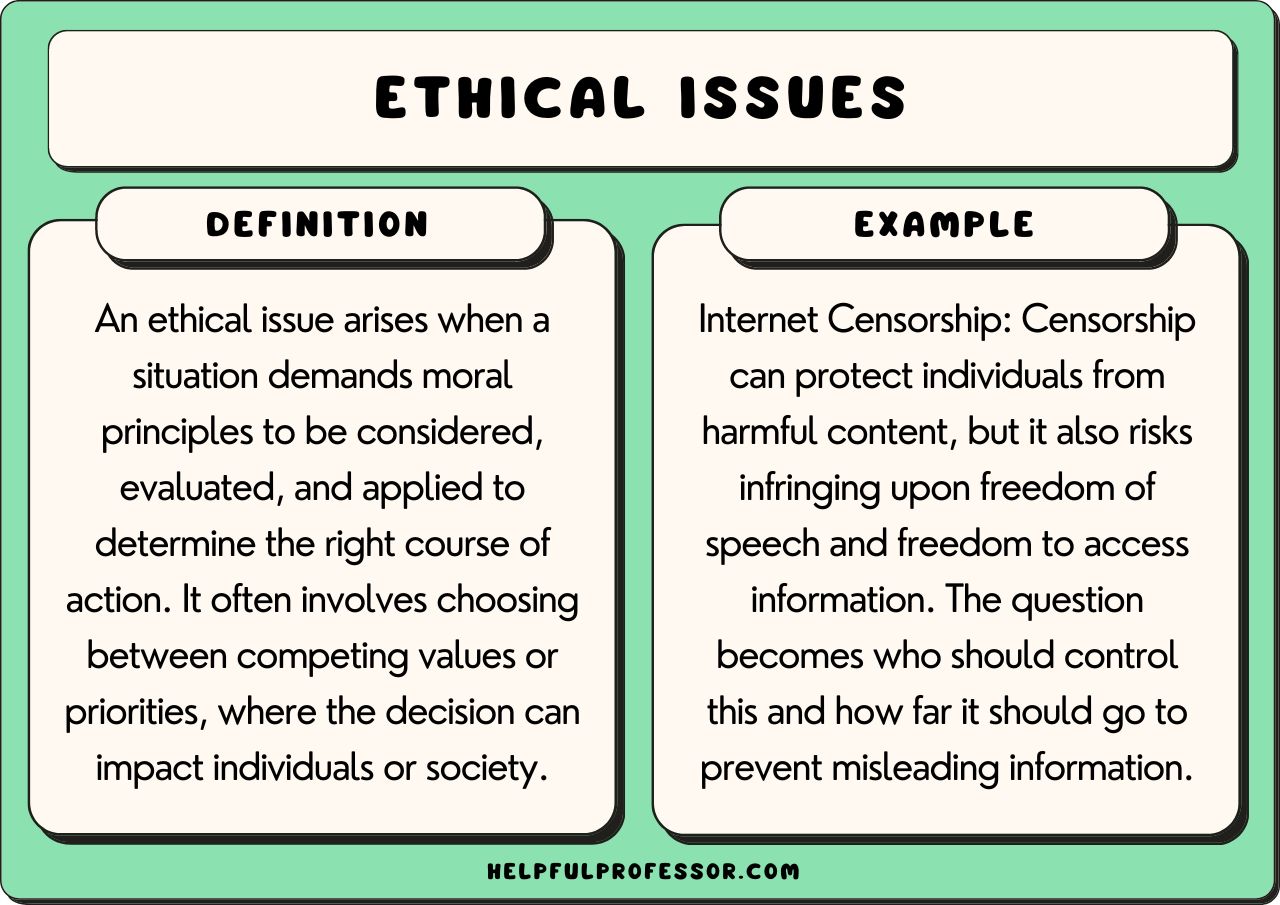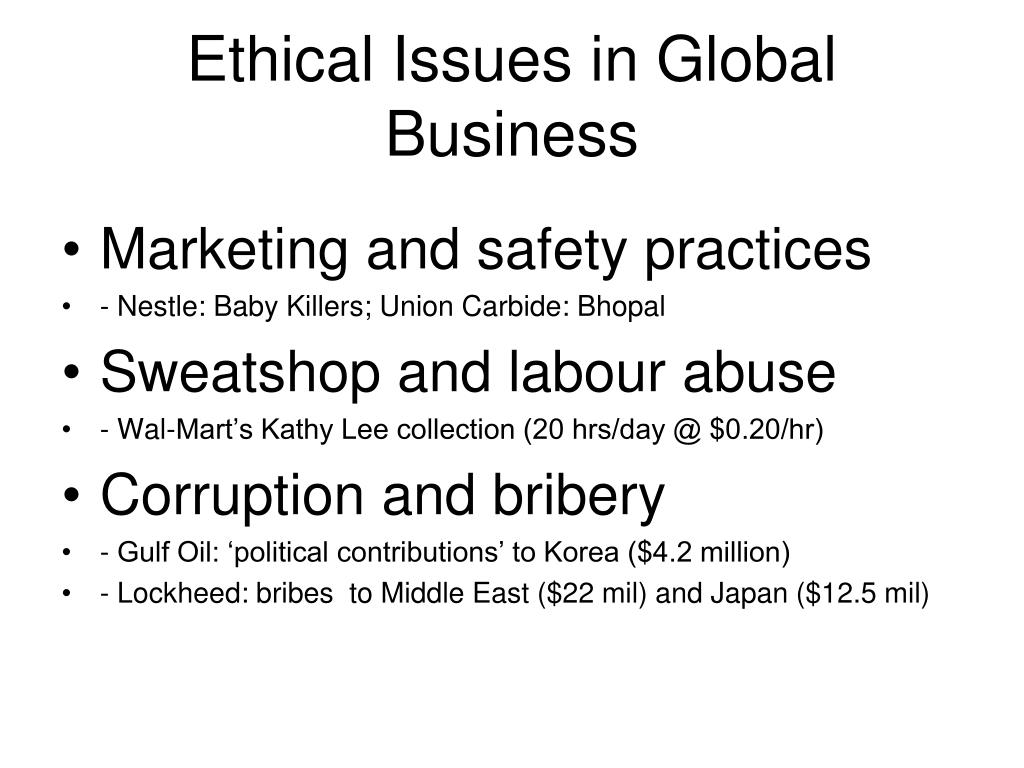What Are Ethical Issues In Business
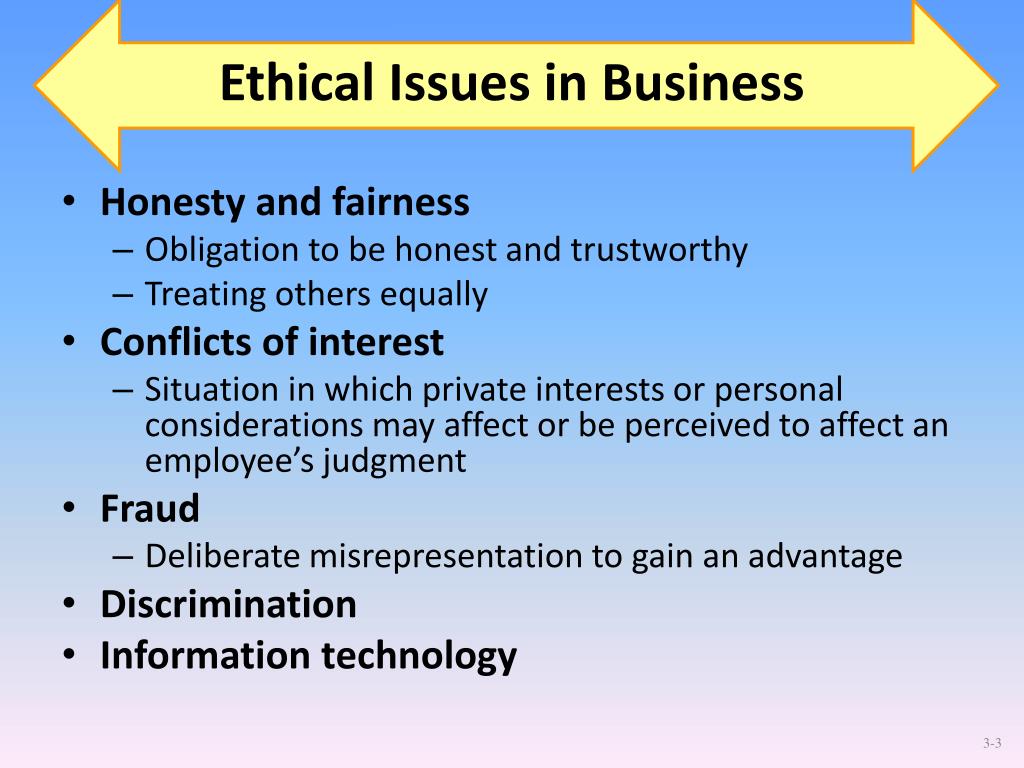
Ethical dilemmas in business are increasingly under the microscope as stakeholders demand greater transparency and accountability. From environmental sustainability to data privacy, organizations face complex challenges that require careful consideration of moral principles alongside profit margins.
At the heart of the matter is the understanding that business decisions have far-reaching consequences. These consequences affect employees, customers, communities, and the environment, making ethical conduct not merely a matter of compliance, but a fundamental aspect of long-term success and societal well-being.
Ethical Quandaries in the Modern Marketplace
Several key areas consistently raise ethical concerns. These include corporate social responsibility (CSR), fair labor practices, environmental impact, marketing and advertising ethics, data privacy, and financial integrity.
Corporate Social Responsibility (CSR)
CSR involves a company's commitment to operate in an economically, socially, and environmentally sustainable manner. Many companies face criticism for greenwashing – presenting a misleading image of environmental responsibility – or failing to address human rights issues within their supply chains. The United Nations Global Compact offers guidelines for businesses to align their operations with sustainable development goals.
Ensuring ethical sourcing, reducing carbon emissions, and supporting community development initiatives are all integral components of a robust CSR strategy. Neglecting these aspects can damage a company's reputation and erode consumer trust.
Fair Labor Practices
Fair labor practices encompass issues such as wage equality, safe working conditions, and the right to organize. Concerns often arise in global supply chains, where companies may be tempted to exploit cheaper labor markets. The International Labour Organization (ILO) sets international labor standards.
Reports of sweatshops, child labor, and unsafe factories continue to plague certain industries, highlighting the need for rigorous monitoring and enforcement of ethical labor standards.
Environmental Impact
Businesses' environmental impact is an increasingly pressing ethical issue. Companies are being scrutinized for their contributions to climate change, pollution, and resource depletion. Governments and regulatory bodies are implementing stricter environmental regulations, while consumers are demanding more sustainable products and practices.
Investing in renewable energy, reducing waste, and adopting circular economy principles are becoming essential for businesses seeking to minimize their environmental footprint.
Marketing and Advertising Ethics
Deceptive advertising, manipulative marketing tactics, and the exploitation of vulnerable populations raise significant ethical concerns. Companies must be transparent and honest in their communications with consumers. They must also avoid targeting harmful products or services to children or other at-risk groups.
The Federal Trade Commission (FTC) plays a crucial role in regulating advertising and protecting consumers from deceptive practices.
Data Privacy
With the rise of big data and artificial intelligence, data privacy has become a paramount ethical consideration. Companies collect vast amounts of personal information. They have a responsibility to protect this data from unauthorized access and misuse.
Data breaches can have devastating consequences for individuals, leading to identity theft, financial loss, and reputational damage. Regulations such as the General Data Protection Regulation (GDPR) in Europe aim to strengthen data privacy rights.
Financial Integrity
Financial integrity is the bedrock of trust in the business world. Ethical breaches such as insider trading, accounting fraud, and bribery can undermine market stability and erode investor confidence. Stringent regulations and corporate governance practices are essential to prevent these abuses.
The Securities and Exchange Commission (SEC) plays a key role in regulating the financial markets and enforcing laws against financial misconduct.
The Impact on Society and the Future of Business
Ethical business practices are not just about avoiding legal penalties or public backlash. They are about creating a more just and sustainable world.
Companies that prioritize ethical behavior are more likely to attract and retain talented employees, build strong customer relationships, and enhance their long-term profitability. Increasingly, consumers are voting with their wallets, supporting businesses that align with their values.
The future of business depends on a commitment to ethical conduct. It also depends on a willingness to address complex challenges with creativity and integrity. By embracing ethical principles, organizations can contribute to a more prosperous and equitable society for all.
